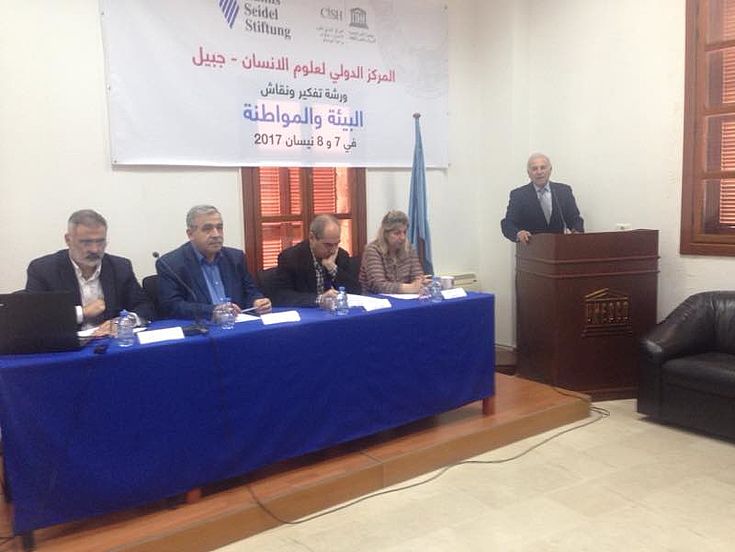What's happening at HSS?
Workshop on 'Towards an environmental citizenship' from April 7 - 8, 2017 in Byblos / Lebanon
It is everyone’s duty as a citizen to live as environmentally friendly, a life responsible as possible, both for our sakes, the planet’s and the sake of our children and their children.
But people also have to feel themselves as citizens of their country. And politicians have the duty to make far-sighted decisions for their country and its citizens. The waste crises in Lebanon show everyone that there is a great need for action. The demonstrations in summer 2015 first focused on the garbage crisis and the people demanded a sustainable solution to the unsanitary and environmentally catastrophic situation. In the further course the waste management question became a catalyst for the rejection of religious sectarian-based solutions. But citizens cannot always just blame politicians for everything. There are many ways in which every single one can live a more environmentally friendly life, and it begins at home.
Citizens expect, that their waste is to be taken away for them without thinking about the costs of collecting and waste disposal. 'Good' citizens should for example adopt the mantra of reduce, reuse and recycle, in this order. This basically means that everyone should try to cut down on his general consumption of things that can lead to waste first and foremost. This can mean refusing carrier bags in shops when they are not needed, and refusing to buy things which have excess packaging. It also means one should only buy and cook the food which is really needed etc., not to forget that one can also compost food waste to cut down on that going to landfill.
These and other aspects like for example the role of women in promoting environmental citizenship were open and critically discussed.
The participants developed recommendations for changes in the behavior of individuals, institutions and organizations, which are a prerequisite for sustainable development. to be published in the media in order to enlighten the public on the dangers threatening the life of mankind. Bringing a citizenship perspective into the environmental debate implies a human-centered view of the environment.
Decision-makers, employees of municipalities, civil society institutions, environmental NGOs, environmental experts, students from schools and universities and representative of the Ministry of Environment and the Ministry of Education took part in the workshop, which was conducted in cooperation with the 'Centre International des Sciences de l'Homme - CISH' in Byblos.


